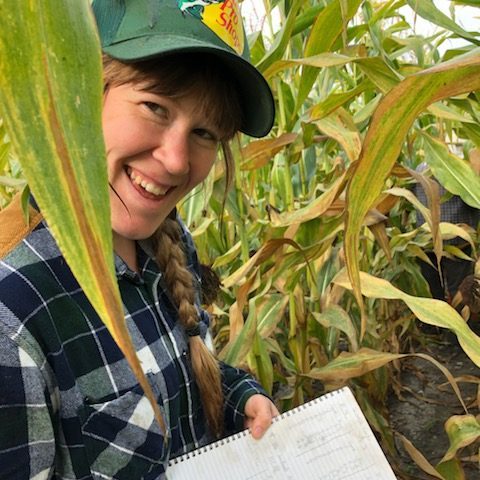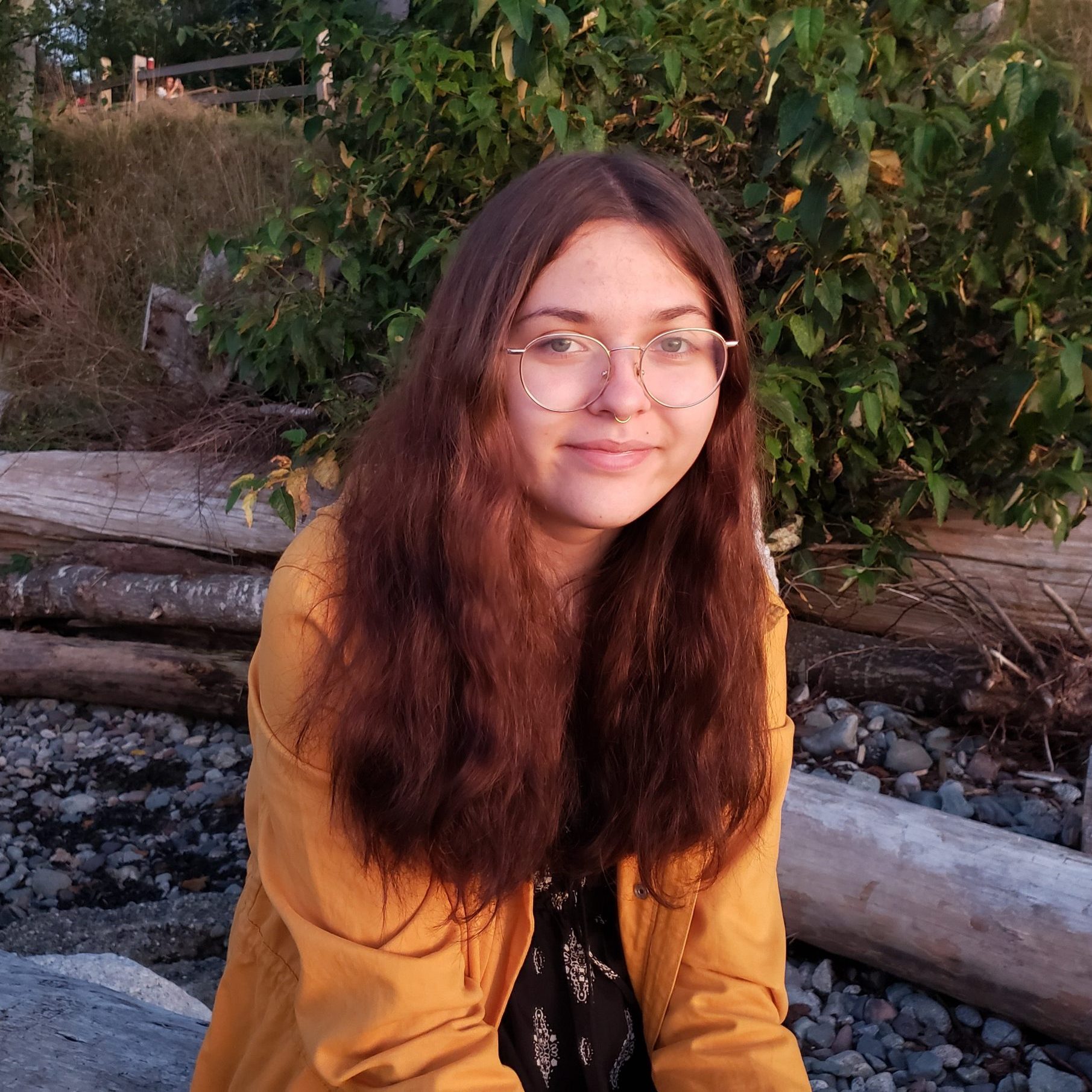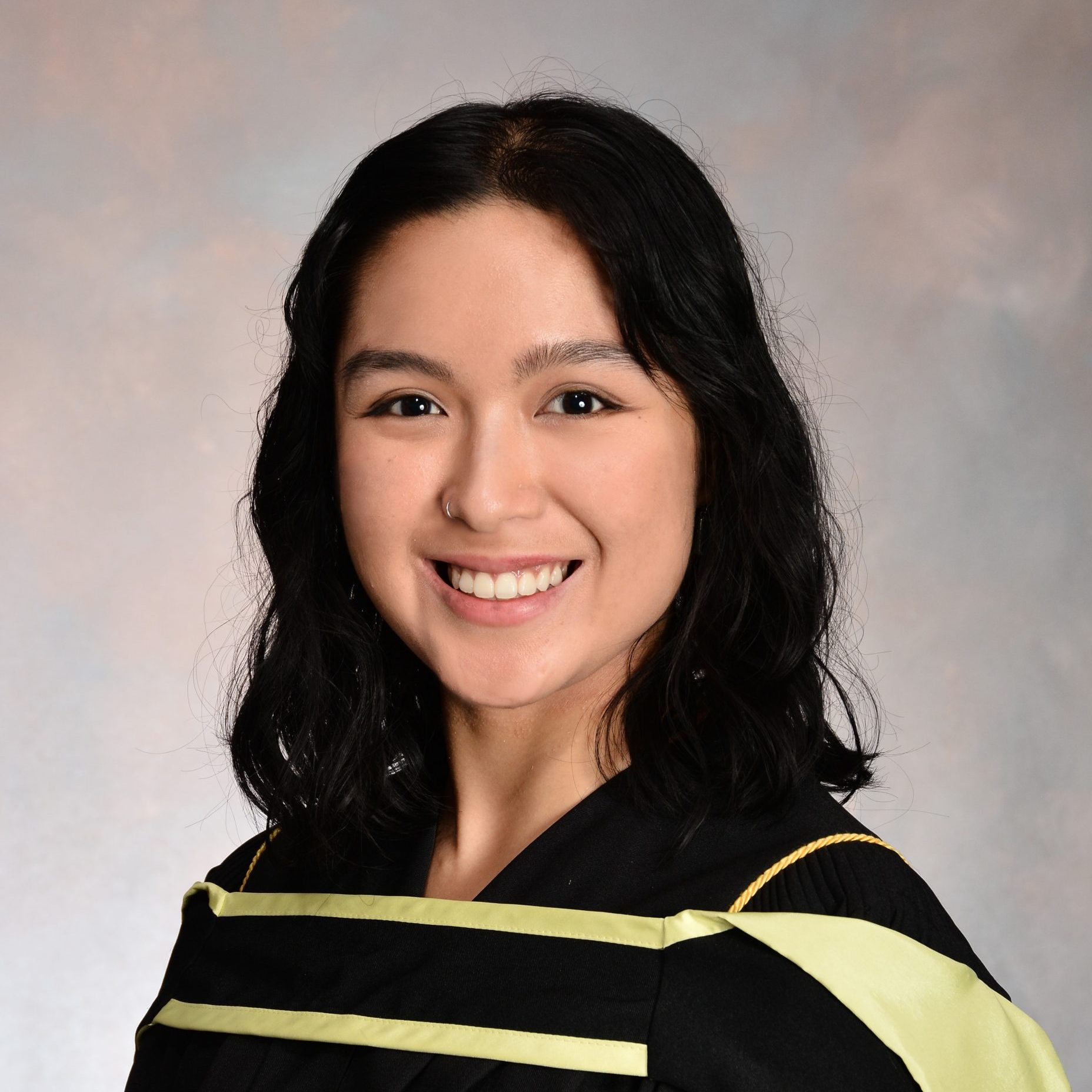International Day of Women and Girls in Science
February 2022 – To celebrate International Day of Women and Girls in Science on Friday, February 11, we are highlighting five outstanding members of the #ubcLFS community.
Trish Hanuszak, MSc Soil Science ’22

Trish Hanuszak, MSc Soil Science ’22
Why did you pursue science?
I pursued a career in science due to an endless and unquenchable obsession with the questions of why and how. Why do certain plants grow where they do? How does a dragonfly nymph go from an aquatic environment to a flying adult? By choosing science, I commit my life to staying curious.
What advice do you have for students wanting to follow a similar path?
There are a lot of societal pressures and assumptions of what a scientist is. Thankfully those harmful stereotypes are slowly being challenged and dissolved. To stay grounded and determined, I try and embody the following quote by Alex Hirsch: “Stay curious, stay weird, stay kind, and don’t let anyone ever tell you aren’t smart or brave or worthy enough.”
Zahra Fazal, BSc Global Resource Systems ’22

Zahra Fazal, BSc Global Resource Systems ’22
Why did you pursue science?
I remember treating every meal I cooked as a science experiment where I mix things, boil others, and notice changes to texture, structure and taste. However, I knew I wanted to pursue a career in public health when my little sister was born and I had to wait in hospital lines for so long to keep getting treatments for the same recurring issues such as malaria, ear infections and pneumonia. I started noticing how housing conditions, food insecurity and other social determinants of health impacted health outcomes from an early age.
Who are your role models?
I would have to say I found my role model a little late in life, and actually at UBC! My role model is Dr. Prince Adu from the UBC School of Population and Public Health. I had cold-emailed him once when I first took classes in SPPH and he was so welcoming, he connected me to many professors in the faculty and helped me get into research. More importantly, he is my role model because he pursued a doctorate in public health despite all the odds he faced as a first-generation student from Ghana.
What advice do you have for students wanting to follow a similar path?
As the first person in my family to attend both high school and university, there were many obstacles in my journey of choosing to pursue STEM. The one advice I would have for someone on a similar path is to reach out to as many resource groups, community hubs and research labs as possible to figure out what community fits you better, what kind of work you would find fulfilling and where you feel at home. UBC has an abundance of communities who would support your goals and who genuinely want to help you succeed, but it takes time to find out where to go and what spaces you feel like yourself in.
Oceania Kreutzer, BSc Applied Biology ’24

Oceania Kreutzer, BSc Applied Biology ’24
Why did you pursue science?
When I was in high school, I was unsure of what I wanted to do post-graduation and had spent quite a lot of time considering the different university programs that were available to me. I have always been quite passionate about science and found I had a deep fascination with the inner workings of the world. This led me to ultimately decide to pursue the subject of Applied Biology, which mixed my passions and academic desires quite beautifully.
Who are your role models?
Both my mother and father are my biggest role models, even though neither of them has had a career based in science. They have always pushed me to strive towards my full potential and have been incredibly supportive of my academic endeavours. They taught me at an early age to commit to my goals and never be afraid to ask for help. The fashion I grew up in truly shaped me into who I am today and fuels me to pursue my passions.
Allison Gacad, BSc Global Resource Systems ’21

Allison Gacad, BSc Global Resource Systems ’21
Who are your role models?
Throughout my undergraduate degree and beyond, all of my research mentors in science have been women. As someone who doesn’t come from a family of research and graduate-level education, it has been really empowering to see mentors who align with an aspect of my identity occupy positions of leadership as professors and principal investigators. Seeing how being a woman in STEM not only operates alongside research and science but enhances it has been especially inspiring.
What advice do you have for students wanting to follow a similar path?
It can be pretty daunting to pursue a career in science but there are many undergraduate opportunities to test the waters. Directed studies are a great opportunity to work with a professor on a research project for credit and can put your networking skills to practice – if you approach a professor with an interest in their work and desire to pursue a project, the worst they could say is no. It’s important to take risks and be comfortable with being uncomfortable – in science, you’re going to be wrong most of the time and ask for help from your peers, so leave your ego behind!
Lexis Ly, MSc Applied Animal Biology

Lexis Ly, Master’s student Applied Animal Biology
Why did you pursue science?
I feel very lucky that I was encouraged by science-loving adults when I was younger. Every year, I presented at my city-wide science fair, although back then it was projects about figure skating rather than animal welfare. Once I became a research assistant during my undergrad, I realized that academic research is like a bigger, slightly more important science fair!
What advice do you have for students wanting to follow a similar path?
My advice for those who are interested in research is to talk to as many people as you can about it! I may not have pursued graduate school if I didn’t take the time to talk to my professors and TAs (many of whom are now my colleagues). Hearing other researchers’ stories is a great way to understand the academic journey. Plus, researchers typically love to talk about what they do—it’s part of the job!